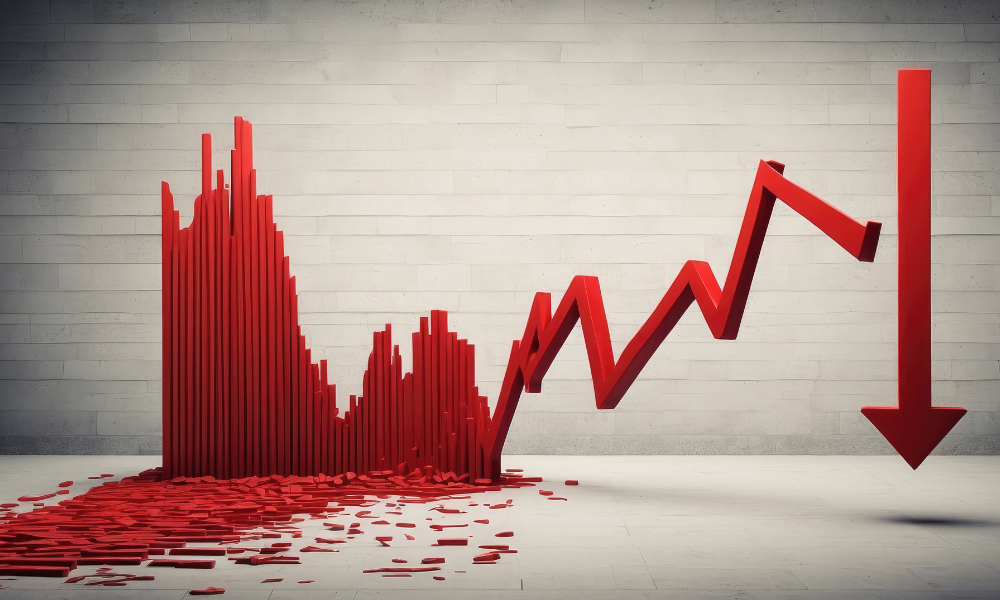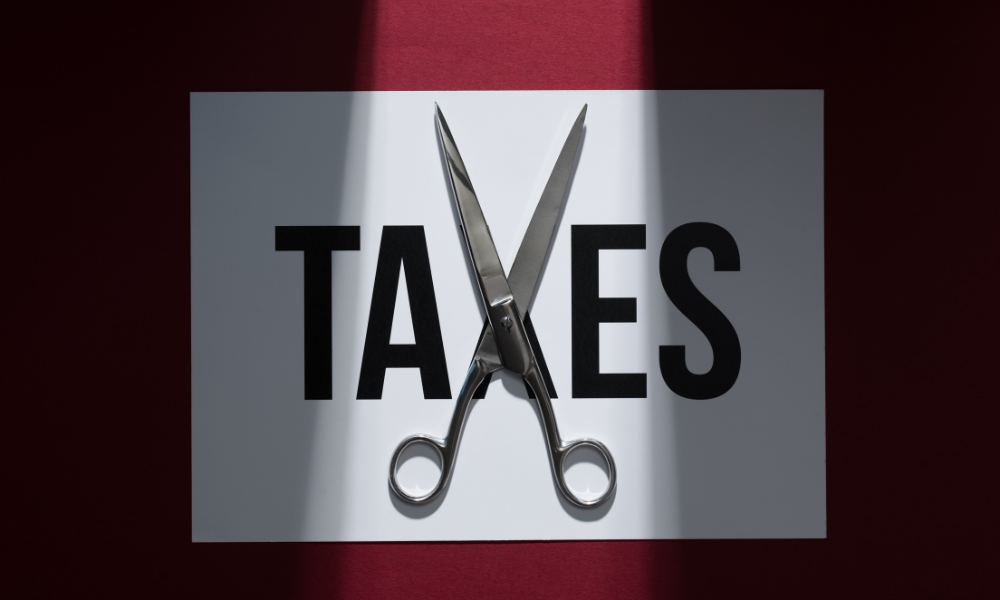Investor uncertainty grows as recession probability rises to 35% from 20%

Stock markets fluctuated sharply on Monday as investors reacted to uncertainty over President Donald Trump’s upcoming tariff policies, set to take effect on what he calls “Liberation Day.”
According to BNN Bloomberg, the S&P 500 recovered 0.6% after an early decline of 1.7%, reducing its first-quarter loss to 4.6%, its weakest performance for the period in two and a half years.
The Dow Jones Industrial Average climbed 417 points, or 1%, after reversing a morning decline, while the Nasdaq Composite edged down 0.1%, weighed down by declines in Tesla and Nvidia.
Global markets react as investors shift to safer assets
Global markets also saw declines. Japan’s Nikkei 225 dropped 4%, South Korea’s Kospi fell 3%, and France’s CAC 40 lost 1.6%.
As reported by BNN Bloomberg, investors sought traditionally safer assets amid uncertainty, with gold briefly surpassing $3,160 per ounce.
US Treasury bond prices rose, sending the 10-year yield down to 4.21% from 4.27% on Friday and 4.80% earlier in the year.
Among major stock movements, Tesla declined 1.7%, bringing its year-to-date loss to 35.8%, while Nvidia fell 1.2%, adding to its 19.3% decline this year.
On the other hand, mortgage servicer Mr. Cooper surged 14.5% after announcing its acquisition by Rocket Mortgage in an all-stock deal valued at $9.4 billion. Warren Buffett’s Berkshire Hathaway gained 1.2%, while Newsmax, in its first day of trading, soared 735%, leading to multiple trading halts.
Investors prepare for April 2 tariff implementation
Investors are preparing for April 2, when Trump’s “reciprocal” tariffs are set to take effect. These measures aim to match tariffs and taxes imposed by other countries on US goods, though specific details remain unclear.
Goldman Sachs economists, cited by BNN Bloomberg, expect an average tariff rate of 15%, prompting the firm to revise its economic projections. Its recession probability estimate for the next year has risen to 35% from 20%, citing expectations of slower growth and market uncertainty.
While some analysts believe the tariffs could be less severe than initially feared, possibly leading to a market rebound, others warn of prolonged economic uncertainty.
BNN Bloomberg notes that some strategists view April 2 as a potential starting point for further trade negotiations rather than a definitive resolution.
By the close of Monday’s session, the S&P 500 finished at 5,611.85, gaining 30.91 points. The Dow ended at 42,001.76, up 417.86 points, while the Nasdaq Composite slipped 23.70 points to 17,299.29. Investors continue to watch for further developments in U.S. trade policy.



